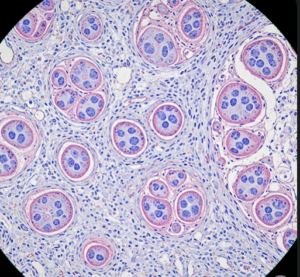Overview
Gastrointestinal disorders encompass a wide range of conditions affecting the digestive tract, including the esophagus, stomach, intestines, liver, pancreas, and gallbladder. These disorders can cause symptoms such as abdominal pain, bloating, diarrhea, constipation, and nausea. South Korea provides advanced diagnostic and treatment options for various gastrointestinal disorders through experienced gastroenterologists and multidisciplinary care teams.
What is Gastrointestinal Disorder?
Gastrointestinal disorders refer to diseases and functional problems affecting any part of the digestive system. They include infections, inflammatory diseases, functional issues, and structural abnormalities that impair digestion, absorption, or elimination of food.
Symptoms
- Abdominal pain or discomfort
- Bloating and gas
- Diarrhea or constipation
- Nausea and vomiting
- Heartburn or acid reflux
- Difficulty swallowing
- Unexplained weight loss
- Blood in stool or black stools
Causes
- Infections (bacterial, viral, parasitic)
- Inflammatory conditions like Crohn’s disease and ulcerative colitis
- Functional disorders such as irritable bowel syndrome (IBS)
- Gastroesophageal reflux disease (GERD)
- Dietary factors and food intolerances
- Structural problems such as hernias or tumors
- Medications and stress
Risk Factors
- Poor diet and lifestyle habits
- Family history of gastrointestinal diseases
- Smoking and excessive alcohol use
- Chronic stress
- Use of NSAIDs or antibiotics
- Age (risk increases with age for certain conditions)
Complications
- Malnutrition and dehydration
- Gastrointestinal bleeding
- Intestinal obstruction
- Increased risk of gastrointestinal cancers
- Chronic pain and impaired quality of life
Prevention
- Healthy, balanced diet rich in fiber
- Regular exercise and hydration
- Avoiding smoking and excessive alcohol consumption
- Managing stress effectively
- Regular medical checkups, especially for high-risk individuals
- Prompt treatment of infections and gastrointestinal symptoms
Treatment Options in Korea
South Korea provides comprehensive care for gastrointestinal disorders with the latest technology and expert care:
- Diagnosis
- Endoscopy (upper and lower) for direct visualization and biopsy
- Imaging techniques like ultrasound, CT, and MRI
- Laboratory tests for infection and inflammation markers
- Motility studies for functional disorders
- Medications
- Antibiotics and antiparasitic agents for infections
- Anti-inflammatory drugs for conditions like IBD
- Proton pump inhibitors and antacids for acid-related disorders
- Laxatives or antidiarrheals for bowel regulation
- Probiotics and dietary supplements
- Procedures and Surgery
- Endoscopic interventions for polyps, bleeding, or strictures
- Minimally invasive surgeries for tumors, hernias, or severe disease
- Nutritional support and feeding tubes in severe cases
- Specialized Centers
- Leading hospitals like Seoul National University Hospital and Samsung Medical Center have dedicated gastroenterology departments with multidisciplinary teams
- Patient education and rehabilitation services













